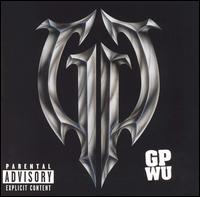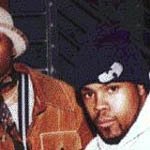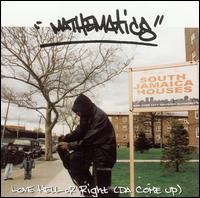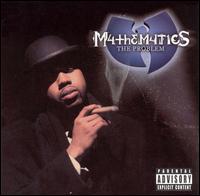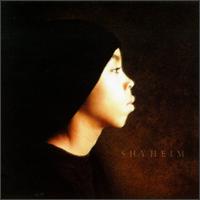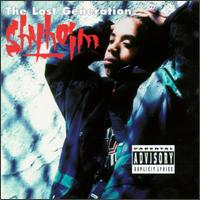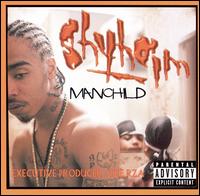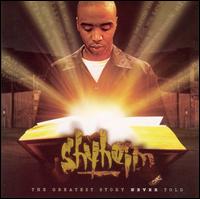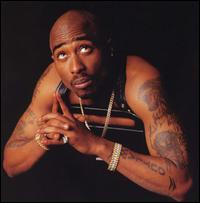
2Pac became the unlikely martyr of gangsta rap, and a tragic symbol of the toll its lifestyle exacted on urban black America. At the outset of his career, it didn't appear that he would emerge as one of the definitive rappers of the '90s — he started out as a second-string rapper and dancer for Digital Underground, joining only after they had already landed their biggest hit. But in 1992, he delivered an acclaimed debut album, 2Pacalypse Now, and quickly followed with a star-making performance in the urban drama Juice. Over the course of one year, his profile rose substantially, based as much on his run-ins with the law as his music. By 1994, 2Pac rivaled Snoop Dogg as the most controversial figure in rap, spending as much time in prison as he did in the recording studio. His burgeoning outlaw mythology helped his 1995 album Me Against The World enter the charts at number one, and it also opened him up to charges of exploitation. Yet, as the single "Dear Mama" illustrated, he was capable of sensitivity as well as violence. Signing with Death Row Records in late 1995, 2Pac released the double-album All Eyez On Me in the spring of 1996, and the record, as well as its hit single "California Love," confirmed his superstar status. Unfortunately, the gangsta lifestyle he captured in his music soon overtook his own life. While his celebrity was at its peak, he publicly fought with his rival, The Notorious B.I.G., and there were tensions brewing at Death Row. Even with such conflicts, however, 2Pac's drive-by shooting in September 1996 came as an unexpected shock. On September 13, six days
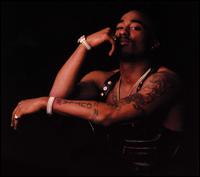
after the shooting, 2Pac passed away, leaving behind a legacy that was based as much on his lifestyle as it was his music.The son of two Black Panther members, Tupac Amaru Shakur was born in New York City. His parents had separated before he was born, and his mother moved him and his sister around the country for much of their childhood. Frequently, the family was at the poverty level, but Shakur managed to gain acceptance to the prestigious Baltimore School of the Arts as a teenager. While he was at the school, his creative side flourished, as he began writing raps and acting. Before he could graduate, his family moved to Marin City, CA, when he was 17 years old. Over the next few years, he lived on the streets and began hustling. Eventually, he met Shock G, the leader of Digital Underground. The Oakland-based crew decided to hire him as a dancer and roadie, and as he toured with the group, he worked on his own material. 2Pac made his first recorded appearance on the group's spring 1991 record, This Is an EP Release, and he also appeared on their second album, Sons Of The P. The following year, he released his own debut, 2Pacalypse Now. The album became a word-of-mouth hit, as "Brenda's Got a Baby" reached the R&B Top 30 and the record went gold. However, its blunt and explicit lyrics earned criticisms for moral watchdogs, and Vice President Dan Quayle attacked the album while he was campaigning for re-election that year.Shakur's profile was raised considerably by his acclaimed role in the Ernest Dickerson film Juice, which led to a lead role in John Singlton's Poetic Justice the following year. By the time the film hit theaters, 2Pac had released his second album, Strictly 4 My N.I.G.G.A.Z., which became a platinum album, peaking at number four on the R&B charts and launching the Top
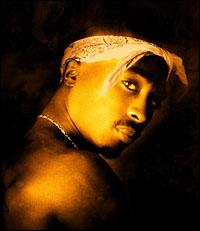
Ten R&B hit singles "I Get Around" and "Keep Ya Head Up," which peaked at number 11 and 12, respectively, on the pop charts. Late in 1993, he acted in the basketball movie Above the Rim. Although Shakur was selling records and earning praise for his music and acting, he began having serious altercations with the law; prior to becoming a recording artist, he had no police record. He was arrested in 1992 after he was involved in a fight that culminated with a stray bullet killing a six-year-old bystander; the charges were later dismissed. 2Pac was filming Menace II Society in the summer of 1993 when he assaulted director Allen Hughes; he was sentenced to 15 days in jail in early 1994. The sentence arrived after two other high-profile incidents. In October of 1993, when he was charged with shooting two off-duty police officers in Atlanta. The charges were dismissed, but the following month, he and two members of his entourage were charged with sexually abusing a female fan. In 1994, he was found guilty of sexual assault. The day after the verdict was announced, he was shot by a pair of muggers while he was in the lobby of a New York City recordings studio. Shakur was sentenced to four-and-a-half years in prison on February 7, 1995.Later that month, Shakur began serving his sentence. He was in jail when his third album, Me Against The World, was released in March. The record entered the charts at number one, making 2Pac the first artist to enjoy a number one record while serving a prison sentence. While he was in prison, he accused The Notorious B.I.G., Puffy Combs, Andre Harrell, and his own close friend Randy "Stretch" Walker of orchestrating his New York shooting. Shakur only served eight months of his sentence, as Suge Knight, the president of Death Row Records, arranged for parole and posted a 1.4 million dollar bond for the rapper. By the end of the year, 2Pac was out of prison and working on his debut for Death Row. On November 30, 1995 — the one-year anniversary of the New York shooting — Walker was killed in a gangland-styled murder in Queens.2Pac's Death Row debut, All Eyez On Me, was the first double disc of original material in hip-hop history. It debuted at number one upon its February release, and would be certified quintuple platinum by the fall. Although he had a hit record and, with the Dr. Dre duet "California Love," a massive single on his hands, Shakur was beginning to tire of hip-hop and started to concentrate on acting.
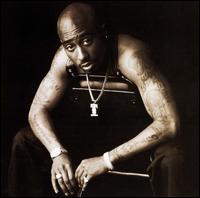
During the summer of 1996, he completed two films, the thriller Bullet and the dark comedy Gridlock'd, which also starred Tim Roth. He also made some recordings for Death Row, which was quickly disintegrating without Dre as the house producer, and as Knight became heavily involved in illegal activities.At the time of his murder in September 1996, there were indications that Shakur was considering leaving Death Row, and maybe even rap, behind. None of those theories can ever be confirmed, just as the reasons behind his shooting remain mysterious. Shakur was shot on the Las Vegas strip as he was riding in the passenger seat of Knight's car. They had just seen the Mike Tyson-Bruce Seldon fight at the MGM Grand, and as they were leaving the hotel, 2Pac got into a fight with an unnamed young black man. It has been suggested that this was the cause of the drive-by shooting, and it has also been suggested that Knight's ties to the mob and to gangs were the reason; another theory is that The Notorious B.I.G. arranged the shooting as retaliation for 2Pac's comments that he slept with Biggie's wife, Faith Evans. Either way, Shakur was shot four times and was admitted to University of Nevada Medical Center. Six days later, he died from his wounds.Hundreds of mourners appeared at the hospital upon news of his death, and the entire entertainment industry mourned his passing, especially since there were no leads in the case. Many believed his death would end the much-hyped East Coast/West Coast hip-hop rivalry and decrease black-on-black violence. Sadly, six months after his death, The Notorious B.I.G. was murdered under similar circumstances. As Shakur's notoriety only increased in the wake of his death, a series of posthumous releases followed, among them Don Killuminati: The 7 Day Theory (issued under the alias Makaveli in 1996), R U Still Down? (Remember Me?) (1997), Still I Rise (1999), Until The End Of Time (2001), and Better Dayz (2002).
2Pac - 2Pacalypse Now (Nov 12, 1991; Interscope)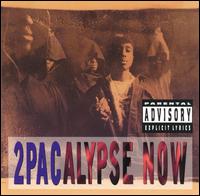
Few expected former Digital Underground member Tupac Amaru Shakur to become hip-hop enemy number one when he made his solo debut with this 1991 album.
Songs like "Crooked Ass Nigga" and "Tha' Lunatic" might have hinted that storm clouds were on the horizon, but there were also excellent advocacy numbers like "Words of Wisdom" and "Young Black Male." This didn't make him a celebrity, but it put Tupac Shakur on the road to stardom.
Click To Download2Pac - Strictly 4 My N.I.G.G.A.Z. (Feb 16, 1993; Jive)
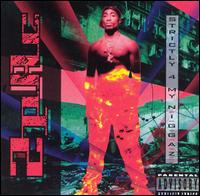
Fulfilling much of the promise showcased on 2Pac's debut album a year earlier, Strictly 4 My N.I.G.G.A.Z. offers a wealth of thoughtful moments such as "Keep Ya Head Up" yet still makes plenty of room for good-time celebrations such as "I Get Around." These two hits in particular make Strictly 4 My N.I.G.G.A.Z. a noteworthy, if sometimes overlooked, moment amid 2Pac's cluttered catalog. They also represent the two approaches 2Pac initially took with his music, emphasizing his thoughtfulness (another insightful highlight being "Papa'z Song") rather than the thuggishness so often associated with him, particularly in the wake of his death. A few notable West Coast rappers join the festivities here — Ice Cube and Ice-T on "Last Wordz" and Digital Underground on "I Get Around" — but 2Pac unfortunately doesn't have any notable producers to support him, as the dated production stands as the album's only potential drawback. Not quite as remarkable as 2Pac's following two masterpieces, Me Against The Worlds (1995) and All Eyez On Me (1996), Strictly 4 My N.I.G.G.A.Z. nonetheless merits acknowledgement, particularly in relation to the string of posthumously released Makaveli-era recordings littering his catalog.
Click To Download2Pac - Me Against the World (Mar 14, 1995; Interscope)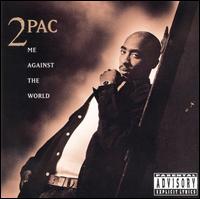
Recorded following his near-fatal shooting in New York, and released while he was in prison, Me Against the World is the point where 2Pac really became a legendary figure. Having stared death in the face and survived, he was a changed man on record, displaying a new confessional bent and a consistent emotional depth. By and large, this isn't the sort of material that made him a gangsta icon; this is 2Pac the soul-baring artist, the foundation of the immense respect he commanded in the hip-hop community. It's his most thematically consistent, least-self-contradicting work, full of genuine reflection about how he's gotten where he is — and dread of the consequences. Even the more combative tracks ("Me Against the World," "Fuck the World") acknowledge the high-risk life he's living, and pause to wonder how things ever went this far. He battles occasional self-loathing, is haunted by the friends he's already lost to violence, and can't escape the desperate paranoia that his own death isn't far in the future. These tracks — most notably "So Many Tears," "Lord Knows," and "Death Around the Corner" — are all the more powerful in hindsight with the chilling knowledge that he was right. Even romance takes on a new meaning as an escape from the hellish pressure of everyday life ("Temptations," "Can U Get Away"), and when that's not available, getting high or drunk is almost a necessity. He longs for the innocence of childhood ("Young Niggaz," "Old School"), and remembers how quickly it disappeared, yet he still pays loving, clear-eyed tribute to his drug-addicted mother on the touching "Dear Mama." Overall, Me Against the World paints a bleak, nihilistic picture, but there's such an honest, self-revealing quality to it that it can't help conveying a certain hope simply through its humanity. It's the best place to go to understand why 2Pac is so revered; it may not be his definitive album, but it just might be his best.
Click To Download2Pac - All Eyez on Me (Feb 13, 1996; Death Row)
Maybe it was his time in prison, or maybe it was simply his signing with Suge Knight's Death Row label. Whatever the case, 2Pac re-emerged hardened and hungry with All Eyez on Me, the first double-disc album of original material in hip-hop history. With all the controversy surrounding him, 2Pac seemingly wanted to throw down a monumental epic whose sheer scope would make it an achievement of itself. But more than that, it's also an unabashed embrace of the gangsta lifestyle, backing off the sober self-recognition of Me Against The World. Sure, there are a few reflective numbers and dead-homiez tributes, but they're much more romanticized this time around. All Eyez on Me is 2Pac the thug icon in all his brazen excess, throwing off all self-control and letting it all hang out — even if some of it would have been better kept to himself. In that sense, it's an accurate depiction of what made him such a volatile and compelling personality, despite some undeniable filler. On the plus side, this is easily the best production he's ever had on record, handled mostly by Johnny J (notably on the smash "How Do U Want It") and Dat Nigga Daz; Dr. Dre also contributes another surefire single in "California Love" (which, unfortunately, is present only as a remix, not the original hit version). Both hits are on the front-loaded first disc, which would be a gangsta classic in itself; other highlights include the anthemic Snoop Dogg duet "2 of Amerikaz Most Wanted," "All About U" (with the required Nate Dogg-sung hook), and "I Ain't Mad at Cha," a tribute to old friends who've gotten off the streets. Despite some good moments, the second disc is slowed by filler and countless guest appearances, plus a few too many thug-lovin' divas crooning their loyalty. Erratic though it may be, All Eyez on Me is nonetheless carried off with the assurance of a legend in his own time, and it stands as 2Pac's magnum opus.
Click To Download
2Pac -  The Don Killuminati: The 7 Day Theory (Nov 5, 1996; Death Row)
The Don Killuminati: The 7 Day Theory (Nov 5, 1996; Death Row)Everything about The Don Killuminati: The 7 Day Theory smacks of exploitation. Released only eight weeks after Tupac Shakur died from gunshot wounds, Death Row released this posthumous album under the name of Makaveli, a pseudonym derived from the Italian politician Niccolo Machiavelli, who faked his own death and reappeared seven days later to take revenge on his enemies. Naturally, the appearance of Don Killuminati so shortly after Tupac's death led many conspiracy theorists to surmise the rapper was still alive, but it was all part of a calculated marketing strategy by Death Row — the label needed something to sustain interest in the album, since the music here is so shoddy. All Eyez On Me proved that Tupac was continuing to grow as a musician and a human being, but Don Killuminati erases that image by concentrating on nothing but tired G-funk beats and back-biting East Coast/West Coast rivalries. Tupac himself sounds uninterested in the music, which makes the conventional, unimaginative music all the more listless. If he had survived to complete Don Killuminati, it is possible that the record could have become something worthwhile, but the overall quality of the material suggests that the album would have been a disappointment no matter what circumstances it appeared under.
Click To Download2Pac - R U Still Down? (Remember Me) (Nov 25, 1997; Jive)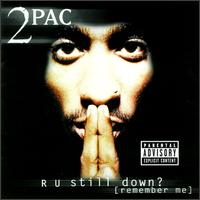
Shortly after 2Pac died, there were rumors that hundreds of unreleased songs remained in the vaults; a mere two months after his death, the first posthumous record, The Don Killuminati: The 7 Day Theory, appeared. Death Row released the record, and shortly afterward, 2Pac's mother, Afeni Shakur, gained the rights to all of his unreleased recordings from both the Interscope and Death Row labels. She founded the Amaru label and released the double-disc R U Still Down? (Remember Me) in late 1997. Culled from 2Pac's unreleased Interscope recordings between 1992 and 1994, including several tracks that have had backing musical tracks "reconstructed," R U Still Down? doesn't have the aura of exploitation that haunts the Makaveli album, but it isn't much better, either. For the most part, Shakur sounds good, spinning out rhymes that are alternately clever or startling, but he eventually begins repeating himself and running out of ideas. That's much better than the music itself, which is pretty much standard-issue gangsta rap that never deviates from the course. There are enough hidden gems to make it worthwhile for hardcore 2Pac fans, but it doesn't necessarily bode well for the Amaru label's series of unreleased recordings. If this mediocre mess is the top of the heap, they'll truly be hurting for strong material once they reach the bottom of the allegedly hundreds of unreleased 2Pac recordings.
Click To Download 2Pac - Still I Rise (Dec 14, 1999; Interscope) 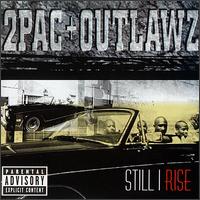
More than three years after his death, it's difficult to believe there's still unreleased 2Pac material out there, much less quality material. After no less than three posthumous albums built around what 2Pac produced when he was still alive (plus an assortment of bootlegs making the rounds), the well apparently still hasn't run dry, and Still I Rise is the inevitable result. As on the Notorious B.I.G. album released just weeks before though, there are some pretty wide gaps on Still I Rise between rhymes actually delivered by 2Pac. There's also an undeniable — some would say obvious — impression that this album just doesn't bear the mark of 2Pac himself.Making up the difference in both categories is Outlawz, a quartet of rappers keeping the flow going between 2Pac fragments. As with 2Pac's other posthumous releases, Still I Rise comes with four or five solid tracks that may have survived the cuts on a real 2Pac album. The title track and "Letter to the President" are obvious winners, still reliant on the syrupy G-funk that 2Pac made famous, and (thankfully) not influenced by the increasing late-'90s insurgence of muzaky hip-hop productions. And "Baby Don't Cry (Keep Ya Head Up II)" — 2Pac's self-produced follow-up to 1993's "Keep Ya Head Up" — is a surprisingly touching message track. For any of 2Pac's fans, it'll be so good to hear his voice again on new material that the cash-in nature of Still I Rise can easily be overlooked. It's just not the album 2Pac would have produced had he still been alive.
Click To Download 2Pac - Until the End of Time (Mar 27, 2001; Interscope)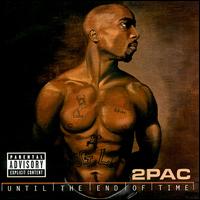
The fourth album released in the wake of 2Pac's 1996 death, Until the End of Time certainly offers plenty of music, two discs' worth to be precise, yet doesn't offer too many highlights besides the chilling title track. As with many of 2Pac's posthumous recordings, the songs here seem overdone, too often dressed up with layers upon layers of production, choruses of background vocals, and a seemingly endless parade of guests. All of this over-production obscures 2Pac's performances, which somehow remain remarkable no matter how deep into the vault Afeni Shakur and Suge Knight have dug. Songs like "Letter 2 My Unborn," "When Thugz Cry," and the title track are just as heartfelt as "Keep Ya Head Up," "Dear Mama," and "I Ain't Mad at Cha" had been, but unfortunately they're marred by radio-orientated production that's too glossy for such stark, literate lyrics. The title track is somewhat of an exception, though. It's one of 2Pac's most desperate, spirited performances ever — the voice of a man face to face with his own fate — and it's accompanied by an anxious yet lulling interpolation of Mr. Mister's 1985 pop hit "Broken Wings" that is far more affective than you'd imagine. Note, however, that there are two versions here of the title track (the best one being the original one, which features RL on the hook), as there are also two versions of a few other songs. These nearly interchangeable remixes function as little more than filler, particularly since the production throughout Until the End of Time is rarely noteworthy. What at first seems like an epic recording, offering 19 tracks in total, consequently seems as overdone as the production. Had this album been parred down to the length of a single disc, it could be an exhilarating listen; as it stands, though, Until the End of Time is a mishmash — too short on standouts like the title track and too loaded with dressed-up, guest-laden over-production — that you'll find yourself fast-forwarding through far more often than you'd prefer.
Click To Download2Pac - Beter Dayz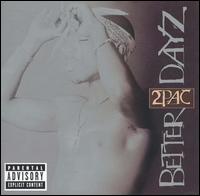 (Nov 26, 2002; Interscope)
(Nov 26, 2002; Interscope) Though it was released on the eve of the busiest year in 2Pac's posthumous career, Better Dayz shouldn't be overlooked — and with the schedule including a feature documentary (with soundtrack), plus two books and another double album, it might be easy for this one to slip from the radar. A lengthy two-disc set, it benefits from a raft of still-compelling material by one of the two or three best rappers in history, as well as excellent compiling by executive producers Suge Knight and Afeni Shakur, 2Pac's mother. Organizing the set roughly into one disc of hardcore rap and one of R&B jams makes for an easier listen, and the R&B disc especially has some strong tracks, opening with a remix of 1995's "My Block" and including quintessentially 2Pac material — reflective, conflicted, occasionally anguished — like "Never Call U B**** Again," "Better Dayz," "Fame," and "This Life I Lead." Most of the tracks are previously unreleased, the rest coming from scattered compilations like Knight's Chronic 2000: Still Smokin' or 1995's The Show soundtrack. It's 2Pac's best album since his death, and bodes well for future material by, and concerning, rap's most legendary figure.
Click To Download2Pac - Tupac: Resurrection [Original Soundtrack] (Nov 11, 2003; Amaru)
Amid all of the generally disappointing posthumous 2Pac releases, the Tupac: Resurrection soundtrack is a diamond in the rough, an affective listening experience that adds a few new productions to a broad sampling of the rapper's early, underexposed recordings. Intended to complement the corresponding film, Tupac: Resurrection was obviously a labor of love for Afeni Shakur, who became the caretaker of her son's legacy following his murder in 1996. The first couple releases she oversaw, beginning with R U Still Down? (1997), were spotty and somewhat ill-conceived; however, on Tupac: Resurrection she makes some wise decisions. For one, she outsources the new productions to a trustworthy producer on a hot streak, Eminem, who works his magic on a trio of tracks: "Ghost," the powerful album opener; "One Day at a Time (Em's Version)," a thoughtful posse track with Em and The Outlawz; and "Runnin' (Dying to Live)," a fascinating collabo between 2Pac and The Notorious B.I.G. that emphasizes the tragedy of their respective murders rather than the drama of their rivalry. For two, she compiles quite a few previously released yet seldom-heard songs from 2Pac's early years, practically all of them career standouts: "Panther Power," one of the earliest songs Pac ever recorded, dating back to approximately 1989; "Same Song," a Digital Underground song from 1991 that includes a brief yet sharp verse by Pac, his first appearance on a major-label recording; "Holler If Ya' Hear Me," a riotous song from Pac's second album, Strictly 4 My N.I.G.G.A.Z. (1993); "Bury Me a G" and "Str8 Ballin'," a pair of highlights from the Thug Life album (1994); and "Starin' Through My Rear View," yet another thoughtful song, this one from the Gang Releated soundtrack (1996) and built upon an eerie sample of Phil Collins' "In the Air Tonight"; and more. And for three, she closes the album with "The Realest Killaz," the extremely popular mixtape collabo between Pac and 50 Cent, where the latter absolutely blasts an unnamed rapper (Ja Rule) for blasphemous impersonation while at the same time brashly declaring, "Till Makaveli returns it's all eyes on me." When all is said and done, some may express disappointment that there's so much previously released material here, or perhaps that Eminem is ill-suited as a collaborator, yet it's hard to deny the emotional impact of this soundtrack's journey from the rapper's afterlife present (the new productions) to his brilliant beginnings (the early recordings) and back (the 50 collabo). In a relatively brief 55 minutes, Tupac: Resurrection frames 2Pac's legacy as well as any best-of retrospective could while simultaneously eschewing the obvious hits and bringing several long-buried gems to light in the process.
Click To Download2Pac - Live (Aug 10, 2004; Death Row)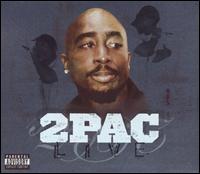
No better than a run-of-the-mill bootleg, and perhaps even worse, the live 2Pac album Death Row released in summer 2004 is a terrible disappointment. Then again, that probably depends on your expectations. By this point, Death Row had become a clearing-house of 2Pac miscellanea: the label had released everything from best-ofs and posthumous double-disc albums to spoken word and remix collections, each release a bit more insubstantial than its predecessor. The previous year's Nu-Mixx Klazzics (2003) was a downright travesty of what a remix album should be — 2Pac's vocal tracks pasted, as is, over lame backing tracks by Death Row's in-house band — and just when you would have thought Suge Knights's exploitation of the 2Pac legacy could not get any more blasphemous, along came 2Pac Live. This slickly packaged album is in fact a faceless hodgepodge of spliced-together audience recordings from various club performances by the rapper during his All Eyez On Me heyday. There are some nice liner notes inside from Billboard contributor Rhonda Baraka; unfortunately, her ceremonial rhetoric belies the shoddy nature of the recordings at hand. If you've ever dipped your toe into the sea of bootlegs out there, most of them rock-related, you probably recognize the difference from soundboard and audience recordings — the former recorded professionally from the soundboard, resulting in a clean, clear sound; the latter recorded amateurishly from the crowd, resulting in a microphone-recorded sound that is anything but clean and clear.
Click To Download 1, 22Pac - Loyal to the Game (Dec 14, 2004; Amaru / Interscope)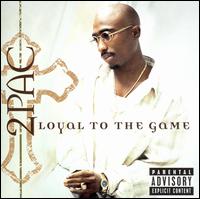
Loyal to the Game, the ninth 2Pac album released by his enterprising mother-turned-executive producer, Afeni Shakur, is one of the more unique entries in the martyred rap legend's extensive catalog. Produced entirely by Eminem, it carries on with the approach the man otherwise known as Marshall Mathers took with his production contributions to the preceding year's TuPac: Resurrection. Eminem had produced a few songs on that soundtrack, most notably the landmark 2Pac-Biggie duet "Runnin' (Dying to Live)," and his work here on Loyal to the Game isn't too much of a departure from the style of that song. In the wake of the song's popularity, Afeni gave Eminem some old tapes, and he went to work, stripping them of their productions, giving them his own trademark backing (characterized by his style of punchy, syncopated, unfunky beatmaking), incorporating some guest raps for secondary verses, and polishing them off with various sorts of hooks. Eminem's efforts here work, yet aren't ideal.
Click To Download
2. Pac’s Life
3. Dumpin’
4. Playa Cardz Right (Female)
5. Whatz Next
6. Sleep
7. International
8. Pac’s Life
9. Playa Cardz Right (Male)
10. Don’t Sleep
11. Soon As I Ger Home
12. Don’t Stop
13. Untouchable
Special Thanks To http://www.rapbox.org
 Ludacris - Release Therapy
Ludacris - Release Therapy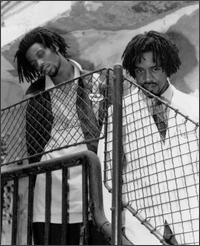
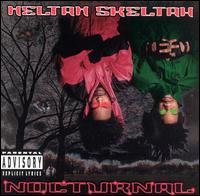








 Fulfilling much of the promise showcased on 2Pac's debut album a year earlier, Strictly 4 My N.I.G.G.A.Z. offers a wealth of thoughtful moments such as "Keep Ya Head Up" yet still makes plenty of room for good-time celebrations such as "I Get Around." These two hits in particular make Strictly 4 My N.I.G.G.A.Z. a noteworthy, if sometimes overlooked, moment amid 2Pac's cluttered catalog. They also represent the two approaches 2Pac initially took with his music, emphasizing his thoughtfulness (another insightful highlight being "Papa'z Song") rather than the thuggishness so often associated with him, particularly in the wake of his death. A few notable West Coast rappers join the festivities here — Ice Cube and Ice-T on "Last Wordz" and Digital Underground on "I Get Around" — but 2Pac unfortunately doesn't have any notable producers to support him, as the dated production stands as the album's only potential drawback. Not quite as remarkable as 2Pac's following two masterpieces, Me Against The Worlds (1995) and All Eyez On Me (1996), Strictly 4 My N.I.G.G.A.Z. nonetheless merits acknowledgement, particularly in relation to the string of posthumously released Makaveli-era recordings littering his catalog.
Fulfilling much of the promise showcased on 2Pac's debut album a year earlier, Strictly 4 My N.I.G.G.A.Z. offers a wealth of thoughtful moments such as "Keep Ya Head Up" yet still makes plenty of room for good-time celebrations such as "I Get Around." These two hits in particular make Strictly 4 My N.I.G.G.A.Z. a noteworthy, if sometimes overlooked, moment amid 2Pac's cluttered catalog. They also represent the two approaches 2Pac initially took with his music, emphasizing his thoughtfulness (another insightful highlight being "Papa'z Song") rather than the thuggishness so often associated with him, particularly in the wake of his death. A few notable West Coast rappers join the festivities here — Ice Cube and Ice-T on "Last Wordz" and Digital Underground on "I Get Around" — but 2Pac unfortunately doesn't have any notable producers to support him, as the dated production stands as the album's only potential drawback. Not quite as remarkable as 2Pac's following two masterpieces, Me Against The Worlds (1995) and All Eyez On Me (1996), Strictly 4 My N.I.G.G.A.Z. nonetheless merits acknowledgement, particularly in relation to the string of posthumously released Makaveli-era recordings littering his catalog.



 More than three years after his death, it's difficult to believe there's still unreleased 2Pac material out there, much less quality material. After no less than three posthumous albums built around what 2Pac produced when he was still alive (plus an assortment of bootlegs making the rounds), the well apparently still hasn't run dry, and Still I Rise is the inevitable result. As on the Notorious B.I.G. album released just weeks before though, there are some pretty wide gaps on Still I Rise between rhymes actually delivered by 2Pac. There's also an undeniable — some would say obvious — impression that this album just doesn't bear the mark of 2Pac himself.Making up the difference in both categories is Outlawz, a quartet of rappers keeping the flow going between 2Pac fragments. As with 2Pac's other posthumous releases, Still I Rise comes with four or five solid tracks that may have survived the cuts on a real 2Pac album. The title track and "Letter to the President" are obvious winners, still reliant on the syrupy G-funk that 2Pac made famous, and (thankfully) not influenced by the increasing late-'90s insurgence of muzaky hip-hop productions. And "Baby Don't Cry (Keep Ya Head Up II)" — 2Pac's self-produced follow-up to 1993's "Keep Ya Head Up" — is a surprisingly touching message track. For any of 2Pac's fans, it'll be so good to hear his voice again on new material that the cash-in nature of Still I Rise can easily be overlooked. It's just not the album 2Pac would have produced had he still been alive.
More than three years after his death, it's difficult to believe there's still unreleased 2Pac material out there, much less quality material. After no less than three posthumous albums built around what 2Pac produced when he was still alive (plus an assortment of bootlegs making the rounds), the well apparently still hasn't run dry, and Still I Rise is the inevitable result. As on the Notorious B.I.G. album released just weeks before though, there are some pretty wide gaps on Still I Rise between rhymes actually delivered by 2Pac. There's also an undeniable — some would say obvious — impression that this album just doesn't bear the mark of 2Pac himself.Making up the difference in both categories is Outlawz, a quartet of rappers keeping the flow going between 2Pac fragments. As with 2Pac's other posthumous releases, Still I Rise comes with four or five solid tracks that may have survived the cuts on a real 2Pac album. The title track and "Letter to the President" are obvious winners, still reliant on the syrupy G-funk that 2Pac made famous, and (thankfully) not influenced by the increasing late-'90s insurgence of muzaky hip-hop productions. And "Baby Don't Cry (Keep Ya Head Up II)" — 2Pac's self-produced follow-up to 1993's "Keep Ya Head Up" — is a surprisingly touching message track. For any of 2Pac's fans, it'll be so good to hear his voice again on new material that the cash-in nature of Still I Rise can easily be overlooked. It's just not the album 2Pac would have produced had he still been alive.




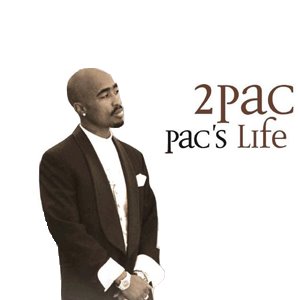
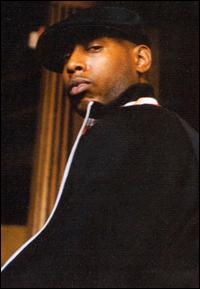 If skills sold, Talib Kweli would have been one of the most commercially successful rappers of his time. As it was, however, the especially earnest MC became one of the most critically successful rappers of his time, which dawned in the late '90s when he rapped alongside Mos Def and DJ Hi-Tek as part of the group Black Star. This trio of up-and-comers and their widely acclaimed self-titled 1998 album debut helped make Rawkus Records one of the premier hip-hop outposts of the late '90s. In the process, they ushered in a short-lived "hip-hop" revival that took the music back to its roots, and thus away from the increasingly extreme and widespread gangsta motifs of the time. Black Star and their label, Rawkus, provided a clear alternative not only to gangsta rap but also to the watered-down and overly calculated pop-rap of Puff Daddy (Diddy) and his ilk. In 2000, Kweli and Hi-Tek then followed up this wide-ranging critical notice with a second acclaimed release for Rawkus: their Reflection Eternal album, which firmly established them apart from
If skills sold, Talib Kweli would have been one of the most commercially successful rappers of his time. As it was, however, the especially earnest MC became one of the most critically successful rappers of his time, which dawned in the late '90s when he rapped alongside Mos Def and DJ Hi-Tek as part of the group Black Star. This trio of up-and-comers and their widely acclaimed self-titled 1998 album debut helped make Rawkus Records one of the premier hip-hop outposts of the late '90s. In the process, they ushered in a short-lived "hip-hop" revival that took the music back to its roots, and thus away from the increasingly extreme and widespread gangsta motifs of the time. Black Star and their label, Rawkus, provided a clear alternative not only to gangsta rap but also to the watered-down and overly calculated pop-rap of Puff Daddy (Diddy) and his ilk. In 2000, Kweli and Hi-Tek then followed up this wide-ranging critical notice with a second acclaimed release for Rawkus: their Reflection Eternal album, which firmly established them apart from 
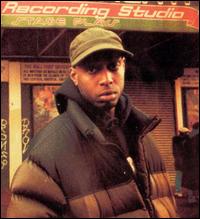
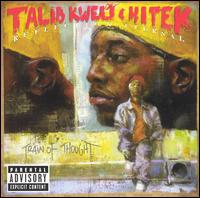
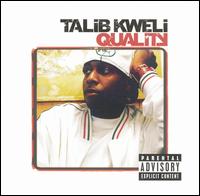 While his erstwhile Black Star mate Mos Def concentrated on his acting career, Talib Kweli set about crafting a truly solo follow-up to his acclaimed debut, Reflection Eternal, this time with a variety of producers in place of partner DJ Hi-Tek. The excellent Quality only ups the ante, building on its predecessor's clear-minded focus with greater scope and a more colorful musical palette. Right off the bat, it's apparent that Kweli has traded his old-school minimalism for a warmer, richer sound — complete with some live instrumentation — that's immediately inviting and accessible. The opening trio of songs — "Rush," "Get By," and "Shock Body" — ranks among the most exciting music he's recorded, and the album only branches out from there. Kweli can pull off genial, good-time hip-hop like lead single "Waitin' for the DJ" and the DJ Quik -produced "Put It in the Air," and follow it with the blistering (and incisive) political fury of "The Proud." He reflects on his image as a so-called conscious rapper on "Good to You," and pushes its boundaries on the Cocoa Brovaz collaboration "Gun Music," where he twists the lyrical conventions of dancehall reggae to his own ends. Pharaohe Monch and The Roots' Black Thought put in exciting guest spots on "Guerrilla Monsoon Rap," and Mos Def appears on "Joy," where Kweli manages to describe the births of his two children without getting self-indulgent. A couple of the mellow R&B jams do get a little too mellow for their own good, drifting along and slowing the album's otherwise consistent momentum. Nonetheless, nearly everything Kweli tries works, and the array of producers keeps things unpredictable. Quality is proof that intelligent hip-hop need not lack excitement, soul, or genuine emotion; it's one of the best rap albums of a year with no shortage of winners.
While his erstwhile Black Star mate Mos Def concentrated on his acting career, Talib Kweli set about crafting a truly solo follow-up to his acclaimed debut, Reflection Eternal, this time with a variety of producers in place of partner DJ Hi-Tek. The excellent Quality only ups the ante, building on its predecessor's clear-minded focus with greater scope and a more colorful musical palette. Right off the bat, it's apparent that Kweli has traded his old-school minimalism for a warmer, richer sound — complete with some live instrumentation — that's immediately inviting and accessible. The opening trio of songs — "Rush," "Get By," and "Shock Body" — ranks among the most exciting music he's recorded, and the album only branches out from there. Kweli can pull off genial, good-time hip-hop like lead single "Waitin' for the DJ" and the DJ Quik -produced "Put It in the Air," and follow it with the blistering (and incisive) political fury of "The Proud." He reflects on his image as a so-called conscious rapper on "Good to You," and pushes its boundaries on the Cocoa Brovaz collaboration "Gun Music," where he twists the lyrical conventions of dancehall reggae to his own ends. Pharaohe Monch and The Roots' Black Thought put in exciting guest spots on "Guerrilla Monsoon Rap," and Mos Def appears on "Joy," where Kweli manages to describe the births of his two children without getting self-indulgent. A couple of the mellow R&B jams do get a little too mellow for their own good, drifting along and slowing the album's otherwise consistent momentum. Nonetheless, nearly everything Kweli tries works, and the array of producers keeps things unpredictable. Quality is proof that intelligent hip-hop need not lack excitement, soul, or genuine emotion; it's one of the best rap albums of a year with no shortage of winners.
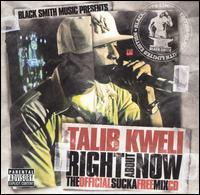
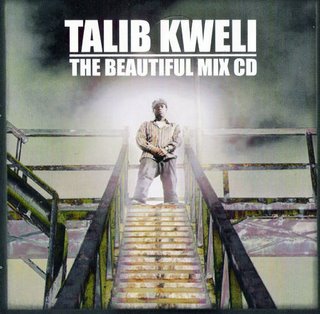
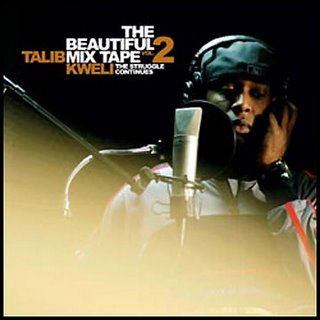
 He walks a city of bullet riddled minds, with havoc escaping the mouths of brutal racists, stray dogs meeting more glorious words than him. Every other turn was a drug spot, every corner shop resembled the familiar face of a B&E party store, every love became a tragedy, and many of life's expectations were not suited for him. Nights he wandered through old Martin Luther King Jr. park ignoring warnings of the danger that would meet him there. It's here that he would contemplate the trials of life.These city streets remained torn and potholed as he grew. This was a location where the poor become poorer, and even the middle class is wrenched into the downward funnel of misfortune. His was an existence where welfare cheese was plentiful, free lunch was magnificent, and friends were friends. Situated herein, a tight knit family strives to survive in the midst of animation. Manifested in that very inner city house were sounds of joy, happiness, arguments, pain, and fighting. It is in this exact environment, that a young man begins to write scriptures. These writings became the escape from the cement seas of pain and anguish that would confront the man made from Bronze.A cast of pure hearted men ran with him, aiming to maintain a righteous path along their travels. Each individual brought a new sense of thought and knowledge into each other's lives. From this wisdom Bronze prospered, and a mounting aspiration began to mold itself in the form of sound. As life moved on, this noble man became part of the city, and part of the grief that has drizzled onto the souls of man. Through his fingers, hip hop music became the map by which he would navigate his existence. Utensils such as keyboards, notepads, pens, pencils, computers, and mics became the medium through which he spoke.Out of the structures of life, lessons, experience, and understanding comes Bronze Nazareth, a student in the school of life.
He walks a city of bullet riddled minds, with havoc escaping the mouths of brutal racists, stray dogs meeting more glorious words than him. Every other turn was a drug spot, every corner shop resembled the familiar face of a B&E party store, every love became a tragedy, and many of life's expectations were not suited for him. Nights he wandered through old Martin Luther King Jr. park ignoring warnings of the danger that would meet him there. It's here that he would contemplate the trials of life.These city streets remained torn and potholed as he grew. This was a location where the poor become poorer, and even the middle class is wrenched into the downward funnel of misfortune. His was an existence where welfare cheese was plentiful, free lunch was magnificent, and friends were friends. Situated herein, a tight knit family strives to survive in the midst of animation. Manifested in that very inner city house were sounds of joy, happiness, arguments, pain, and fighting. It is in this exact environment, that a young man begins to write scriptures. These writings became the escape from the cement seas of pain and anguish that would confront the man made from Bronze.A cast of pure hearted men ran with him, aiming to maintain a righteous path along their travels. Each individual brought a new sense of thought and knowledge into each other's lives. From this wisdom Bronze prospered, and a mounting aspiration began to mold itself in the form of sound. As life moved on, this noble man became part of the city, and part of the grief that has drizzled onto the souls of man. Through his fingers, hip hop music became the map by which he would navigate his existence. Utensils such as keyboards, notepads, pens, pencils, computers, and mics became the medium through which he spoke.Out of the structures of life, lessons, experience, and understanding comes Bronze Nazareth, a student in the school of life.
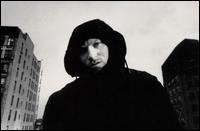 Remedy is a white rapper who is part of The Wu-Tang Clan crew (but not a member of the actual rap group). Born in 1972 as Ross Filler in Staten Island, NY, he began writing songs and poems at the age of seven, and by high school, was performing as a rapper at local shows. Filler (around this time known as Remedy) began recording demos at Northshore Soundworks, the home of such rap luminaries as EPMD, Das EFX, and Redman. After striking up a friendship with Wu-Tang Clan member RZA, Remedy's track "Never Again" (a track inspired by the rapper's Jewish roots and the holocaust) appeared on the hit Wu 1998 release, The Swarm. Remedy's debut album, The Genuine Article, appeared in April of 2001, produced entirely by the rapper himself and mixed by RZA. A year later, Code Red arrived in November, including a track that offered his personal viewpoint on the terrorist hijacking of September 11th, 2001.
Remedy is a white rapper who is part of The Wu-Tang Clan crew (but not a member of the actual rap group). Born in 1972 as Ross Filler in Staten Island, NY, he began writing songs and poems at the age of seven, and by high school, was performing as a rapper at local shows. Filler (around this time known as Remedy) began recording demos at Northshore Soundworks, the home of such rap luminaries as EPMD, Das EFX, and Redman. After striking up a friendship with Wu-Tang Clan member RZA, Remedy's track "Never Again" (a track inspired by the rapper's Jewish roots and the holocaust) appeared on the hit Wu 1998 release, The Swarm. Remedy's debut album, The Genuine Article, appeared in April of 2001, produced entirely by the rapper himself and mixed by RZA. A year later, Code Red arrived in November, including a track that offered his personal viewpoint on the terrorist hijacking of September 11th, 2001. 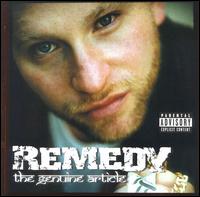
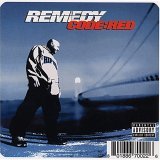 This album is full of knowledge, like all Wu-Tang affiliated music. In the intro Remedy sets the stage for this LP, "And Now I Bring The Offering: Remedy, Another Genuine Article" and he produces, Book Of Life is a thinking man's track. If you listen to the album from beginning to end, he definetely reps his roots and drops a gem for everyone.
This album is full of knowledge, like all Wu-Tang affiliated music. In the intro Remedy sets the stage for this LP, "And Now I Bring The Offering: Remedy, Another Genuine Article" and he produces, Book Of Life is a thinking man's track. If you listen to the album from beginning to end, he definetely reps his roots and drops a gem for everyone. Relatively minor stars in the Wu-Tang constellation, GP Wu released their debut, Dont Go Againt The Grain, in 1998. That album was produced by Daddy O from Stetsasonic and Hank Shocklee of Bomb Squad and Public Enemy fame, making the Wu-Tang connection even more tenuous. However, as Wu-Tang Clan historians will undoubtedly know, the four GP Wu members — Rubberbands, June Luva, Pop Da Brown Hornet, and Down Low Recka — all made appearances on Shyheim's first two albums, Shyheim a/k/a the Rugged Child (1994) and Lost Generation (1996). The connection was made indelible on Shyheim's Manchild album cover from 1999, featuring the shirtless MC with a GP Wu tattoo on his bicep.
Relatively minor stars in the Wu-Tang constellation, GP Wu released their debut, Dont Go Againt The Grain, in 1998. That album was produced by Daddy O from Stetsasonic and Hank Shocklee of Bomb Squad and Public Enemy fame, making the Wu-Tang connection even more tenuous. However, as Wu-Tang Clan historians will undoubtedly know, the four GP Wu members — Rubberbands, June Luva, Pop Da Brown Hornet, and Down Low Recka — all made appearances on Shyheim's first two albums, Shyheim a/k/a the Rugged Child (1994) and Lost Generation (1996). The connection was made indelible on Shyheim's Manchild album cover from 1999, featuring the shirtless MC with a GP Wu tattoo on his bicep.